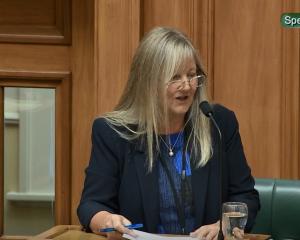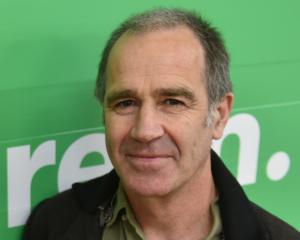
The Government will consider overturning a ban on prisoners from voting in light of a scathing report that said it had disproportionately hurt Māori and breached the Crown's Treaty of Waitangi obligations.
But any change would need the support of New Zealand First, which has previously stymied justice reforms, blocking Justice Minister Andrew Little's plans to repeal the three strikes legislation.
The Waitangi Tribunal report, released today, found that the 2010 law change was inconsistent with Treaty principles and led to significant prejudice against Māori.
The change meant prisoners were banned from voting because they were removed from the electoral roll; previously prisoners serving sentences less than three years could be enrolled.
In 2010, Māori were 2.1 times more likely to have been removed from the electoral roll than non-Māori. In 2018, they were 11.4 times more likely.
The tribunal said the Crown advice to the select committee for the 2010 bill failed to recognise the consequences of the legislation for Māori.
Disenfranchising Māori prisoners also continued to affect people after they were released.
"The Crown, therefore, has failed in its duty to actively protect the right of Māori to equitably participate in the electoral process and exercise their tino rangatiratanga individually and collectively."
Claimant Carmen Hetaraka described the right to vote as one of the only ways
for Māori to exercise "even a small degree of rangatiratanga".
"Taking away this right, especially where the offence is relatively minor, is wrong," he told the tribunal.
The tribunal made three recommendations:
• to overturn the ban and allow all prisoners to vote, irrespective of sentence
• to have a process to ensure prisoners and ex-prisoners are enrolled in time for the 2020 election
• to ensure Crown advice on the impact of a bill fulfils the Crown's Treaty of Waitangi obligations
The report follows a Supreme Court ruling that the ban on prisoner voting, while not an invalid law, breached the Bill of Rights Act.
Labour MPs were strongly opposed to the 2010 bill when it was passed, and the Green Party said last year that it wanted the prisoner voting ban overturned.
Little has previously said that looking at overturning the 2010 law was not a priority.
But in light of the Supreme Court judgment and the tribunal report, he said, Cabinet would look at the issue in the coming weeks.
"Because most Māori in prison are on shorter sentences, they are disproportionately affected by this [law] ... and once they're taken off the roll, it's a hell of a job to get them back on the roll, so it's having a long-term impact that wasn't intended.
"For all those reasons, there is something there for Cabinet to consider."
Little said the select committee at the time should have heard advice from the Ministry of Justice, but the previous Government had decided that advice should come from the Corrections Department.
A process was already being looked at involving enrolling prisoners upon release, and he said he would be surprised if current advice to select committees did not honour the Crown's obligations under the Treaty.
Little said it was unfair to assume NZ First would be against granting prisoners the right to vote, noting the party was not in Parliament in 2010 when the bill passed.
NZ First leader Winston Peters, who is also Deputy Prime Minister, said he had a personal view on the issue, but did not want to divulge that until after Cabinet and the party caucus had had time to consider the issue.
Last year Corrections Minister Kelvin Davis spoke in favour of allowing prisoners to vote, while in 2010 his caucus colleagues Grant Robertson and Chris Hipkins, who were Opposition backbench MPs at the time, spoke out against the voting ban.
"It does nothing to uphold our democracy. In fact, it is a shame on our democracy," Robertson said at the bill's third reading.
Hipkins said removing Māori prisoners from the electoral roll made it very unlikely that they would ever enrol again.
"It is likely that we are ultimately depriving them of the ability to vote for ever. That is what this bill will do."
Comments
Prison is for those that have actively offended against society, to such a degree that they have forfeited their right to participate in society. They are not there because they are victims of society but because society has been victimized by them.
That message needs to be very clear !
This proposal demonstrates the sniveling attitudes that keep reducing the safety and welfare of New Zealanders.
A number of people are in prison as a result of defying political decisions.Many do not like government regardless of who is being elected.












